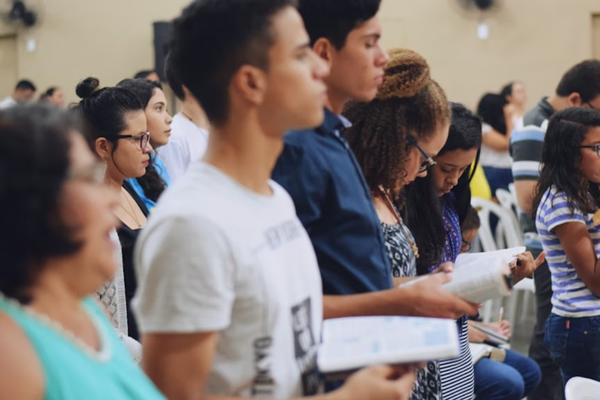
In all the political drama and legal argument over the Rwanda bill, the lives of the people affected are too easily forgotten. Ministers, politicians and legal experts give media interviews without even talking about who they are: the men, women and children – our fellow human beings – who come to our shores seeking safety from countries such as Afghanistan, Iran, Sudan and Syria. Countries ravaged by war or run by totalitarian regimes that willingly torture their opponents.
It has taken the tragic news of the suspected suicide on the Bibby Stockholm to remind us all that, while we do not yet know the reasons behind this sad death or the background of the individual involved, the lives of very traumatised people are at stake. Lives that are so fragile. Lives that have had to cope with unimaginable adversity.
In saying that Rwanda is not a safe country to which to send people seeking asylum, the supreme court was in essence saying that it cannot be trusted with these lives. They won’t have their rights respected, there won’t be the necessary legal oversight and they won’t be treated well. We know from our work at the Refugee Council that there is incredible fear and anxiety among many in the asylum system about being forcibly removed to Rwanda.
The Bibby Stockholm is no exception. In fact, for those housed on the barge there has been a heightened sense of dread and distress compounded by the feeling of isolation and being moored on the sea. There have been rumours they will be the first to be deported, or that the barge will start moving during the night to transport them to a different country.
The medical support for them is minimal. There is a nurse on-site but not daily access to mental health support. Across the asylum system access to therapeutic help is very limited. People regularly experience panic attacks, flashbacks, chronic insomnia and serious anxiety. Some feel so unsafe they self-harm or are suicidal. It was only in September that the body of a 37-year-old man who had killed himself was found in the grounds of a hotel in Wakefield housing people seeking asylum.
Hostility is built into our asylum system, premised on the belief held by successive governments that the more stark, austere and minimal it is, the less likely it is people will want to come. Treating people well is seen as a “pull factor” for asylum seekers, even though there is no credible evidence to support this.
During Rishi Sunak’s premiership it has reached a new extreme. Earlier this year, the former immigration minister, Robert Jenrick, ordered cartoons on the wall of a reception centre for children to be painted over because he thought they were too welcoming and sent the wrong message.
Using a barge designed for workers to live on for a matter of weeks to hold vulnerable people seeking asylum for months on end, doubling the number the barge is designed for from 200 to nearly 500, is a further manifestation of a desire to provide the mere basics.
The government openly admits this. Alex Chalk, the justice secretary, made the point back in August of describing the Bibby Stockholm as “a bit austere”, adding: “Frankly, that is not unreasonable.”
No longer are people seen as individuals with legitimate needs to be met. They are simply “illegal immigrants” to be processed and managed. To be expelled out of sight and mind to Rwanda.
Basic decency and humanity is lost. Council leaders point out that entrenching the hostile environment, which also includes Operation Maximise designed to cram people into room-sharing arrangements in basic hotel accommodation, “defies common sense”.
Those onboard the Bibby Stockholm brave enough to speak out have said they feel like “victims of a game” played by politicians. It is a game that has appalling human consequences. We should never forget that.
Enver Solomon is chief executive of the Refugee Council, which is part of the 2023 Guardian Charity Appeal
In the UK and Ireland, Samaritans can be contacted on freephone 116 123, or email jo@samaritans.org or jo@samaritans.ie. In the US, you can call or text the National Suicide Prevention Lifeline on 988, chat on 988lifeline.org, or text HOME to 741741 to connect with a crisis counselor. In Australia, the crisis support service Lifeline is 13 11 14. Other international helplines can be found at befrienders.org
Do you have an opinion on the issues raised in this article? If you would like to submit a response of up to 300 words by email to be considered for publication in our letters section, please click here.







